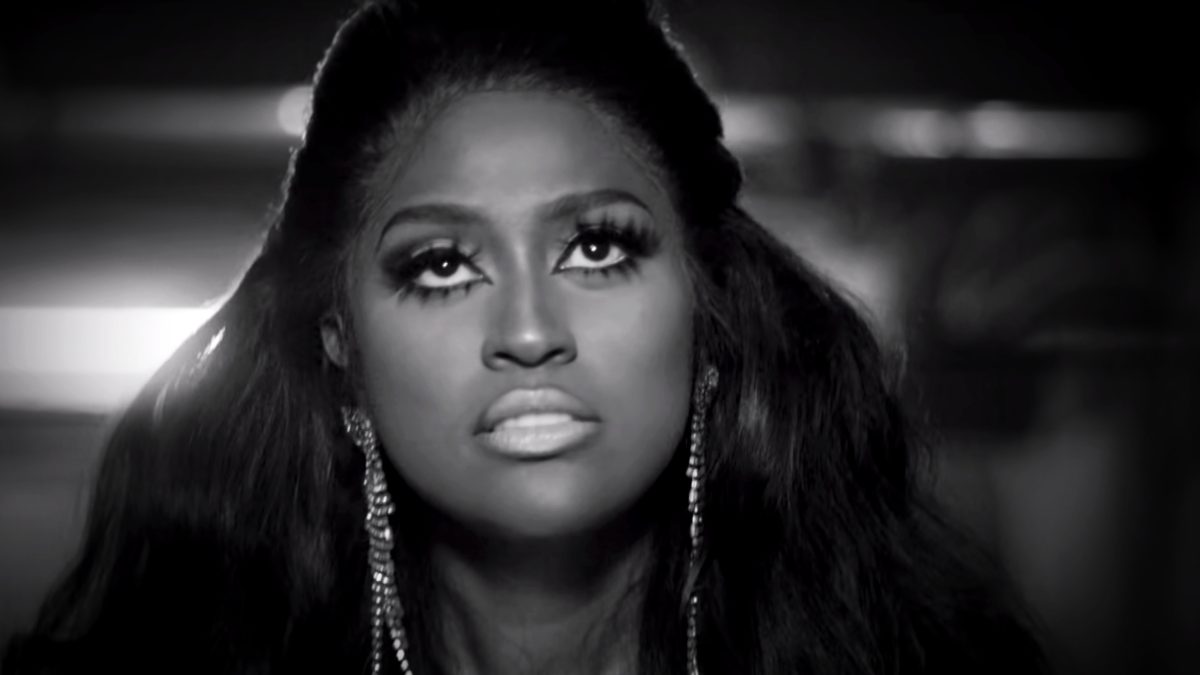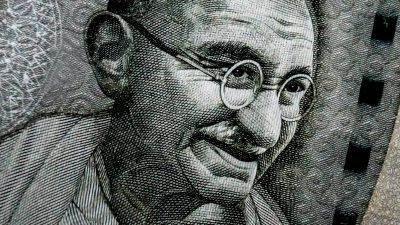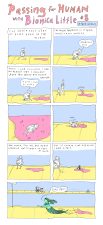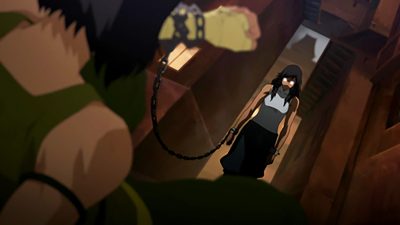People Bodies
How Heaux Tales Taught Me to Shed Shame
Like Jazmine Sullivan’s “The Other Side,” a song from her latest EP, Heaux Tales, I saw a life outside the confines of conservatism—the length of my skirt and the policing of what I was allowed to say and do.
I’m not sure how it happened, but I—the good girl—ended up standing outside of my middle school with the “fast” girls of Family Christian Academy. They’d convinced me to skip class for the first time and play longer on the playground. Being a self-proclaimed good girl meant that I was expected to be the exact opposite of the fast girls, who’d show their midriff and cleavage. They were the girls who shortened the hems on their red plaid uniform skirts with safety pins and stuffed strawberry Lip Smackers and glitter eyeshadow into secret compartments of backpacks. They knew how to pull their white button-up shirts down just enough to show the perfect amount of shoulder and collarbone.
I knew all this because I worshipped them.
I was mesmerized by their exposed skin and bodies, which sparked something in me that I would reckon with my entire life. At eight years old, my Black Baptist-church upbringing began to rival a deep hunger for freedom. I was terrified by the idea of rejecting the norms I was taught. Yet I couldn’t keep myself away from it.
As we stood on the merry-go-round, waiting for our teacher to notice we weren’t in class, the group sang TLC’s “Red Light Special” in a way that felt like gospel. I didn’t know the song; I had never sung secular music before. The fast girls taught me the words, and I was quickly engulfed in the raunchiness.
Just come through my door
take off my clothes
and turn on the red light.
I knew who TLC was, but I had no idea what those lyrics meant. I sang along, not wanting to be seen as the odd one out, but something inside was reeling—fighting to escape.
I don’t remember what portion of the song we were singing by the time my teacher caught us, but the lyrics were wild and we sang them loud enough for her to throw us into detention immediately. Our punishment: memorizing the book of Psalms and reciting it to the entire school.
There I stood, shaking, reciting the Good Book in front of five hundred peers, but it still didn’t shake the liberating feeling of those naughty lyrics pouring out of my mouth. Looking back, I realize how taboo it was for an eight-year-old student to sing “Red Light Special” because my school’s version of sex education was “no sex” and no education about it. When I got home, my mom explained the song was about sex and was inappropriate, but she never went into detail. It wasn’t the lyrics that excited me—to be honest, it was more about the rhythm, the tone, and the danger of the song. They spoke to a part of me that I didn’t know was listening.
Like Jazmine Sullivan’s “The Other Side,” a song from her latest EP, Heaux Tales , I saw a life outside the confines of conservatism—the length of my skirt and the policing of what I was allowed to say and do. I had dreams of getting out of Gary, Indiana, and exploring the furthest big city from home—the lights, the skin, the autonomy. Unlike Jazmine, I wasn’t waiting for my millionaire; I was chasing opportunity. My sheltered life left me feeling like everyone was keeping some juicy secret from me and made me want, even more, to wet my lips and gorge on whatever savory things had been concealed.
*
The last track of Heaux Tales , “Girl Like Me,” is a song about reflecting on past relationships and the ways women feel pressured to change for men. When I first heard the lyrics, they immediately transported me back to dating my first high school boyfriend. He was the kind of boy you stayed with because he saw you and made you feel special, the type who controlled you but forced you to overlook it. I was used to being told what to do — by the Black Baptist church, by my family of believers, by my private Christian school—so this didn’t seem out of the ordinary.
I didn’t even own my preteen body, because my boyfriend acted as though he did. On any given day, he’d lose his temper and punch a wall, throw objects toward my head, and would even shake me when he got angry. On Valentine’s Day during our senior year, our third year together, he convinced me I was ready to have sex.
His idea of a romantic Valentine’s date was to take me to a monster truck rally because nothing revs a girl’s engine like monster trucks. The only thing I knew about my vagina was my mother’s short “becoming a woman” conversation about menstruation and what I’d seen in movies. I didn’t ask anyone for sex advice for fear of being seen as “fast” or “nasty,” or, God forbid, my mother finding out I was sexually active. So I let him sneak me into his basement after the truck rally to consummate our “magical relationship.”
Days before our date, he kept stressing that I needed to “loosen up” mentally and physically, and because we were too young to buy sex toys or lube, he suggested using a spicy hot dog to loosen up my vagina instead. When I got home, I naively tried his suggestion, but my vagina instantly started burning. He had directed the whole experience, even down to my preparation. There’s something about being sixteen, thinking you’re controlling your movements but finally realizing there are strings attached to your hands.
My first time was lying on a cold basement floor, not writhing in pleasure but staring at the ceiling, thinking about the lessons I’d learned about “good girls.” I regretted not listening to the voice that said “wait,” but I couldn’t find the words to speak up, nor did I feel free to leave.
I knew my body was powerful, but did I possess the strength to reclaim it? Looking back, I wish I would have had words from “Antoinette’s Tale” to soothe me. “We’re out here telling them that the pussy is theirs when in actuality, it’s ours . ” At that moment on the floor, I would have much rather had the women of Heaux Tales be my sex-ed godmothers instead of the toxic ’90s pop songs that set me up for failure.
Much of what I knew about sex and sensuality came from conversations with my more experienced friends and top radio. At twelve, I learned sensuality by body rolling to Britney Spears in my white friend’s bedroom. We’d practice for hours, talk about the world through Britney’s and Christina Aguilera’s eyes, and play MASH with Justin Timberlake and the Backstreet Boys. One of my best friends, also a church girl, even taught me how to twerk in the mirror to the Ying Yang Twins.
Out of all the things the matriarchs shielded me from, I hate that part of it was the power within myself. Just like that day on the playground, it was liberating to express myself without the confines of sexual expectation and masculine approval. I felt talented and beautiful, but I never connected the way I moved my body to a sexual act. I wanted to feel the confidence and self-expression of dancing because it made me feel powerful, for that reason alone. Even when my mother yelled, “What are y’all doing down there?” when she caught us dancing to “Oops! . . . I Did It Again,” uninhibited booty popping and singing explicit songs was an awakening. My sensuality was a hidden secret, limited to my friends’ bedrooms. With all the adults in my life sheltering me, those moments of clandestine freedom were when I felt most alive. Out of all the things the matriarchs shielded me from, I hate that part of it was the power within myself.
*
During my first year of college, I studied sensuality from the few other Black girls in my dorm, soaking up the sexiness of popular culture like osmosis. My guilty pleasure was closing my bedroom door and watching music videos of Aaliyah, Janet Jackson, and Destiny’s Child, trying to contort my body into sensual positions that didn’t fit right.
I tried to picture myself being a sex symbol, but I couldn’t. Every friend I made in my first week seemed to be more prepared to flirt and get guys’ attention; I was far behind. At our first college party, my other Black girlfriend knew all the right words to say or the perfect moments to wink and smile. She knew exactly when to laugh, what to wear, and how to keep guys wanting more. It was that confidence, security, and control I wanted.
In one of the interludes on Heaux Tales called “Amanda’s Tale,” Amanda talks about how sex has become her superpower and how she found confidence in owning her sexuality. I had tried to be Amanda. I was faking the funk with smudged eyeliner, shortened skirts, raised titties, and toes in heels because that’s what I thought they wanted to see .
At a party, I had watched a frat guy and his brothers lift girls by their waists and slide fingers under their skirts without consent. I watched the girls giggle and let it happen. It didn’t sit right with me, but I thought that was the norm—the world of sexual liberation I knew nothing about. I heard them tell girls to come back to their rooms, spitting whatever wack line and coaxing them to take more sips of party punch to relax. Soon enough, I found out what it was like to be them.
Gotta stop getting fucked up
What did I have in my cup?
I don’t know where I woke up
The song “Bodies” reminds me of waking up in a random frat guy’s bed the morning after, feeling a sense of grief and loss. My shaky “No” in response to his breathy yet powerful “Come onnnnnnn” was ignored. He unbuttoned my jeans, stripping my clothes and my voice. I could hear my mother again: “Looking for yourself in someone else will always leave you feeling empty.”
She was right. Centering a man’s wants and desires over mine directly opposed the sexual freedom I was searching for.
Like Jazmine in “Bodies,” I became a shell of myself. After a stint of flings, random hookups, and a bad breakup, college became a depressive wave that I could no longer fuck my way through. If feeling invisible in a primarily white Southern town wasn’t enough, waking up in random beds and walks of shame in the too-bright morning sun felt like I was living someone else’s life. I craved intimacy and security, but I didn’t know how to get there.
*
After taking a year off of school, I made a fresh start. I packed up everything in small-town Wilmington and moved to Greensboro, a major metropolitan Southern city. When I opened the door to my new place with just twenty dollars, twelve boxes, and a letter of recommendation to a prominent HBCU in town, fear rushed through my body, but I knew I had to try being alone for a while.
With the fire and confidence of “ Precious’ Tale”— Okay, I’ma get my own, and I’ma be able to stand on my own — I made a vow to not date. I chose to get to know myself, my body, and what it wanted, which included a much-awaited, fully stocked lingerie drawer. Every weekend, I’d get dolled up in my favorite black dress and go downtown or stay in with wine and dinner and slip on my lace lingerie. There was freedom in knowing no one else would see it.
Saturday nights were when I came alive as a sex researcher— seeking out porn from a woman’s perspective. Sadly, flipping through the hundreds of options online, I stumbled upon Pornhub and was instantly turned off by the male gaze and grunting white men.
So I turned on Vicky Cristina Barcelona . Alone in my room, I looked around as if I was going to get caught and punished, but I let myself enjoy the scenes. I found myself attracted to the women in the movie, and it cracked open what I had been denying for years—my queerness. The thrill of women being in charge of their own pleasure excited me, and I wanted more.
I found myself attracted to the women in the movie, and it cracked open what I had been denying for years—my queerness. I eventually found feminist content online that focused on women’s authentic pleasure—women giving themselves orgasms and lesbian couples enraptured in ecstasy. These videos helped to uncover my hidden desires and taught me that I could enjoy sexual liberation in all forms.
Knowing I wasn’t the only woman feeling suffocated by knee-length skirts and gospel hymns, I wanted to find more examples of women-led pleasure in feminist literature too. I searched for poetry, and every week I’d get lost in a new passage or poem by Audre Lorde, Adrienne Rich, and Nikki Giovanni.
I came across Audre Lorde’s Sister Outsider and felt relieved by her poem on body liberation. “We have been raised to fear the yes within ourselves, our deepest craving,” Lorde writes; words that gave me permission to want. I had been so bound by fear that I needed someone to tell me it was okay to be a sexual being. She writes, in The Uses of the Erotic , “We tend to think of the erotic as an easy, tantalizing sexual arousal. I speak of the erotic as the deepest life force, a force which moves us toward living in a fundamental way.”
Reading prolific BIPOC feminist writers was the green light to say yes to myself.
That newfound freedom fueled my poetry and connected me to a community of liberated women-of-color artists in the city, which I desperately needed. Leaning on and growing from them, I started a women-led writing collective—a safe space to be open about identity, sex, trauma, and Black womanhood. My writing became so bold, as a result of our collective, that I made a career of speaking on women’s rights, gender-based violence, and empowerment. Each poem I wrote was an instructional curriculum on reclaiming our bodies. I wrote, “What is a woman when she is unafraid? She is a brook, a stream, a whole damn ocean.”
As I educated young girls and adults, my voice grew stronger and louder—emboldened from controlling my own narrative. As Antoinette says, men’s “egos are often way too fragile to ever handle a woman who owns and has any real agency over her body. ” I learned very quickly that my calling was to be that voice and find agency.
*
In 2018, I was invited to write and direct a play with my poems on sexual liberation as the monologues. In two short months, Seven Deadly Sins of Being a Woman sold out.
On opening night, I stepped into the spotlight. “When I was twelve or thirteen, my mother caught me and a female friend bouncing our vaginas off the end of the bedpost like live bait.” My voice echoed in the auditorium, filled with my family members and friends, but I was unafraid. While teenage me would have run, I said yes. “And we were just at the point of falling off the bone, the moment when the salmon is so tender, when my mother opened the door.” I saw the shocked faces of people that couldn’t believe my audacity, but I locked eyes with them anyway.
Yes is now a part of my lexicon, and I want to say it everywhere I go. Every time I face fear, I hear Lorde’s poetry, encouraging me to say yes to myself.
In an interview about Heaux Tales , Jazmine said she wanted “ to give a voice to every woman.” She shared how women in the EP were “about ownership and confidence and also about vulnerability and self-reflection.” Heaux Tales echoes my Black feminist reading and makes me feel seen. It is not only a reminder of my sexual power, but a soundtrack to my twenty-year journey to move past my shame. The album confirms that who I am is okay to be because many other women are walking the same journey of self-discovery with me. We are all shedding shame, one poem, one lyric, one monologue, one exhilarating riff at a time.
When I sing the lyrics to Heaux Tales , I feel the same freedom I first knew on the playground of Family Christian Academy. It takes me back to the merry-go-round, head back, wild with unjaded innocence. Where nothing is off-limits. I want to be just like I was in that moment on the playground, unrestricted, unpoliced. But now, instead of being comfortable because I was innocent and unknowing, I am free because I’m confident in my sexuality.







